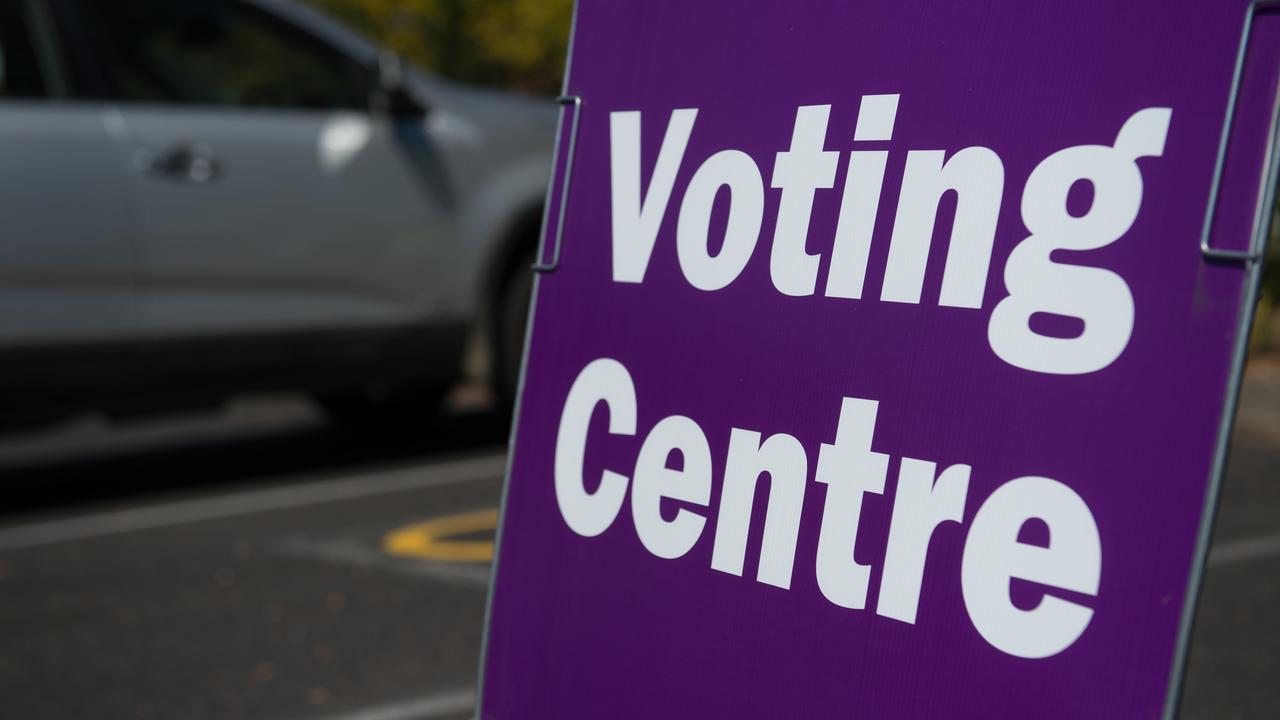Shock poll shows Dutton not popular with women and voters think Albanese has right priorities
Peter Dutton has driven key voters back to Anthony Albanese, according to a shock poll which has also found a massive change for Labor, as the election still remains contestable.
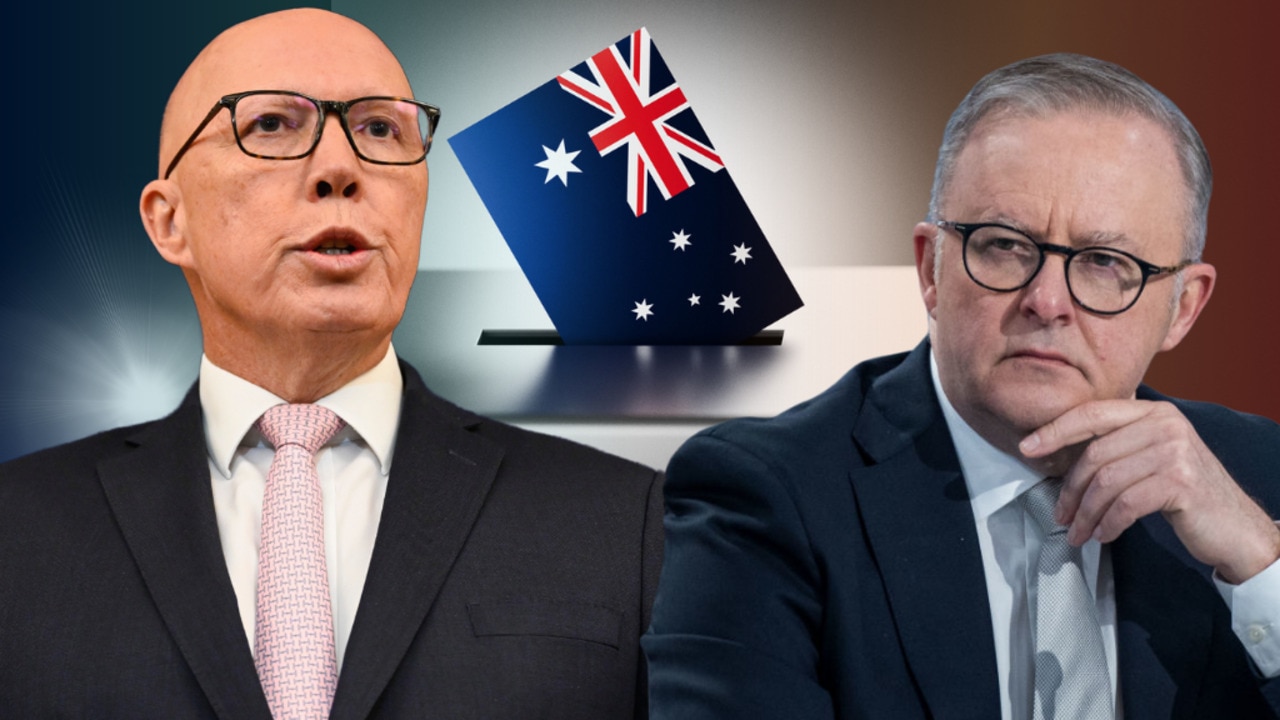
Federal Election
Don't miss out on the headlines from Federal Election. Followed categories will be added to My News.
Peter Dutton’s pledge to send public servants back to the office has helped drive women back to Anthony Albanese, according to a shock poll which has also found a massive improvement in the number of people who think the Government is focused on the right priorities.
And in a blow to the Coalition’s key brand equity of economic management, the poll found more people believe Mr Albanese and Labor have better economic visions for both themselves and Australia than Mr Dutton.
The results also found the Coalition’s pledge to cut fuel excise and the Government promised income tax are almost tied for the public’s affection.
The latest Redbridge and Accent Research poll of federal voting intention has Labor now has an election-winning-lead 52 per cent of the two-party-preferred vote, up one per cent from last month.
The turnaround in Labor’s support in Redbridge’s poll, which last November had the Coalition leading 51 per cent to 49 per cent, has been driven by a huge turnaround in perceptions of the government’s priorities.
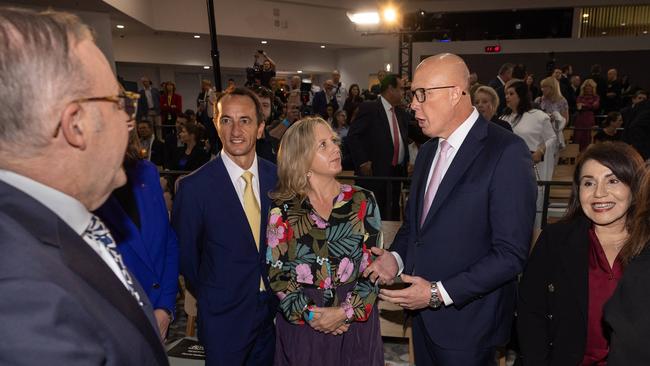
In November Labor was registering -22 on this metric whereas today while it is still in net negative territory, public dissatisfaction has now shrunk to -3.
On the other hand there has been a six point net drop in the percentage of people who think Mr Dutton and the Coalition are ready for government.
Redbridge tested voters’ reactions to a series of recently announced policies by both sides in the current election.
The most popular was the Labor’s $150 energy rebate at +65 followed by Peter Dutton’s pledge to cut the permanent immigration program by 25 per cent from around 185,000 to 140,000 which had a net favorability of +47.
The next two most popular policies were Mr Dutton’s National Gas Plan to fast-track new projects and reserve gas for domestic use and his threat to break up the big supermarket chains which were +39 and +36 respectively.
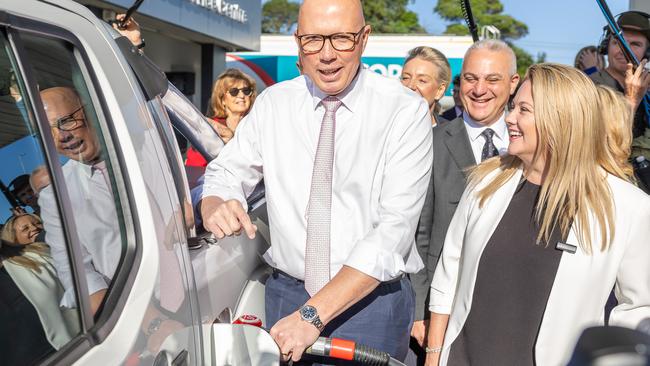
These were closely followed by the Government’s plan to pause the indexation on draught beer for two years which had a net favorability of +34 per cent.
In contrast Mr Dutton’s pledge to save $10 billion by reducing the size of the federal public service by 41,000 only had a net favorability of +5 while ending public servants’ work-from-home arrangements was on balance unpopular with rating of minus -5.
However while the policy was popular with men with a net favorability of + 7 it was wildly unpopular with women with a net rating of – 19.
Redbridge also tested the government’s signature cost-of-living policies – the Coalition’s fuel excise cut and Labor’s income tax cut with the first being preferred by 40 per cent of voters and the second by 39 per cent.
Redbridge director Kos Samaras there was growing evidence Mr Dutton had missed the boat in attempting to win women voters over.
“Over the last 18 months Labor lost the support of many women with young children in the outer suburbs and regions.” he said.
“They are a group that has felt the full force of the inflationary crisis, having to work longer hours and make their family budgets work.
“Dutton had a small window to win them over, as many were in the departure lounge, looking for an alternative. Instead his recent policy announcements, like working from home, have scared them back to Labor.”
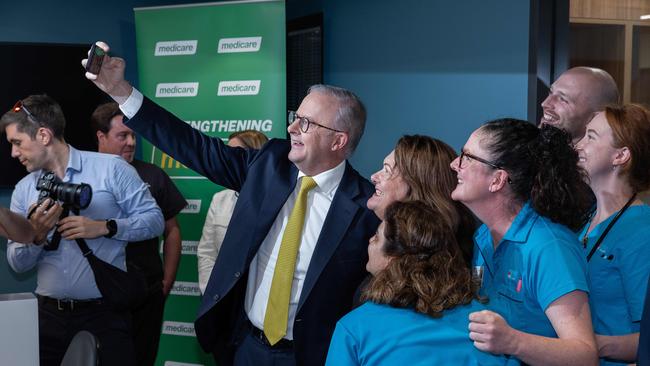
He said this mistake had coincided with the Government’s recent announcements around healthcare.
“This movement back has been helped along by a deliberate strategy executed by Labor to win them back.
His colleague Tony Barry said the poll showed there was still a very high “soft vote segment” which meant the election remained very contestable.
“Labor is getting some electoral reward for doing more to own the economic narrative over the past six weeks,” he said.
“Voters are in the marketplace for policies that will deliver meaningful outcomes especially in the cost of living space and at the moment they are being persuaded by Jim Chalmers but they remain very soft.”
He said the government had also been aided by mistakes from the Coalition.
“In the absence of a stronger economic narrative from the Coalition, these lead indicator numbers show that soft voters will default to a Labor primary or preference vote consideration,” he said.
He also warned that even though this was the first week of the formal campaign, time was running for the Opposition.
“The only thing you can’t do in an election campaign is create time and with just over two weeks until early voting starts the Coalition have to put a totemic policy into the market to mobilise and energise those soft voters currently leaning to Labor.”
Dr Shaun Ratcliff said the polling showed that young voters were more likely to support a hung parliament than older voters.
“Australia is heading towards a hung parliament, and that appears to be welcomed by nearly half of all voters,” he said.
“It is primarily voters aged 65 and older who prefer a majority government. Younger voters, renters, those experiencing considerable financial stress, and voters that are not in the workforce (excluding the retired) all prefer some form of minority government, or an alternative to any kind of Labor or Coalition government.
“These voters are more likely to come down on the left than the right, but overall likely prefer anti-system parties more than anything. They are driving the fragmentation of the Australian political system and pushing us towards a minority government at this election.
“This is not an accident though, and the attempt to use the threat of minority government as a scare campaign may backfire. This is an outcome many voters appear to want and believe will be better for the country.”
The poll had the Coalition on a primary vote of 36 per cent compared to 33 per cent for Labor, 12 per cent for the Greens and 19 per cent of independents/other.
The poll of 1006 people was conducted between 8 March and Tuesday 1 April, 2025 using an online panel.
More Coverage
Originally published as Shock poll shows Dutton not popular with women and voters think Albanese has right priorities





